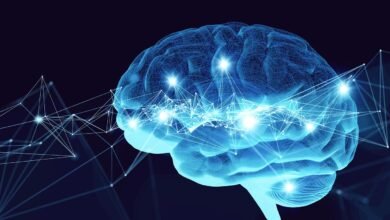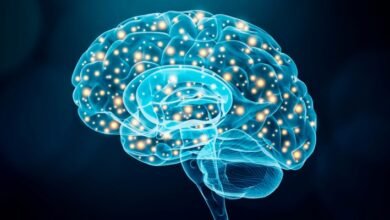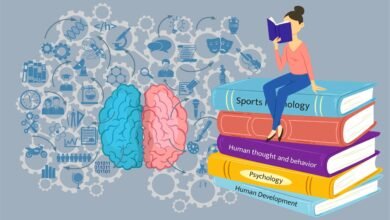Insights into the Human Psyche 2024

The human psyche, often described as the totality of the human mind, encompasses a complex interplay of thoughts, emotions, behaviors, and experiences. It serves as the cornerstone of our individuality, shaping how we perceive the world and interact with others. Understanding the intricacies of the human psyche offers profound insights into human behavior, cognition, and emotional processes.
Understanding the Complexity of the Human Mind
At the core of psychological inquiry lies the quest to unravel the mysteries of the human mind. The human psyche is multifaceted, comprising conscious and unconscious elements that influence our perceptions, beliefs, and actions. Psychologists delve into the depths of consciousness, exploring the unconscious mind through various psychoanalytic techniques and therapeutic interventions.
The Role of Nature vs. Nurture
The age-old debate of nature versus nurture underscores the dynamic interplay between genetic predispositions and environmental influences in shaping human behavior and development. While genetic factors contribute to our predispositions and temperament, environmental experiences and social interactions play a pivotal role in molding our personalities and cognitive processes.
Psychological Development Across the Lifespan
Human psychological development unfolds across the lifespan, traversing distinct stages marked by unique challenges and milestones. From the formative years of childhood to the complexities of adulthood, individuals undergo profound transformations in cognition, emotion regulation, and socialization.
Childhood Development
Early childhood experiences lay the foundation for psychological growth and emotional well-being. Factors such as attachment patterns, parental nurturance, and environmental stimulation profoundly shape children’s cognitive and socioemotional development.
Adolescent Psychology
Adolescence heralds a period of exploration and identity formation, characterized by heightened emotional intensity and peer influence. Adolescents navigate the challenges of autonomy, identity consolidation, and social conformity as they transition into adulthood.
Adult Psychology
Adulthood encompasses diverse life stages, including young adulthood, middle age, and later life. Adults grapple with myriad responsibilities, aspirations, and life transitions, confronting existential questions and striving for personal fulfillment and meaning.
Factors Influencing Human Behavior
Human behavior is shaped by a myriad of interconnected factors, spanning biological, environmental, and sociocultural domains. These influences intertwine to shape our beliefs, attitudes, and actions, elucidating the complexity of human nature.
Biological Factors
Biological determinants such as genetics, neurochemistry, and physiological processes exert profound influence on human behavior and psychological functioning. From neurotransmitter imbalances to genetic predispositions, biological factors underscore the intricate interplay between mind and body.
Environmental Factors
Environmental contexts, including family dynamics, socioeconomic status, and cultural norms, profoundly impact individuals’ cognitive development and behavioral patterns. Environmental stressors, such as trauma and adversity, can precipitate psychological distress and maladaptive coping strategies.
Sociocultural Influences
Sociocultural factors, encompassing societal norms, cultural values, and interpersonal relationships, shape individuals’ identities and worldviews. Cultural diversity enriches our understanding of human behavior, highlighting the contextual nuances that underscore psychological phenomena.
Common Psychological Disorders and Their Insights
Psychological disorders, ranging from anxiety and depression to schizophrenia and personality disorders, offer invaluable insights into the human psyche’s vulnerabilities and resilience. These disorders illuminate the intricate interplay between genetic predispositions, environmental stressors, and psychosocial factors.
Anxiety Disorders
Anxiety disorders, characterized by excessive worry and fear, underscore the intricate interplay between biological vulnerabilities and environmental stressors. From generalized anxiety disorder to panic disorder, these conditions underscore the complex etiology of psychological distress.
Mood Disorders
Mood disorders, including depression and bipolar disorder, manifest as disruptions in emotional regulation and mood stability. Genetic predispositions, neurotransmitter imbalances, and psychosocial stressors contribute to the onset and course of mood disorders, highlighting the multifactorial nature of affective disturbances.
Personality Disorders
Personality disorders, characterized by enduring patterns of maladaptive behavior and interpersonal dysfunction, underscore the interplay between genetic predispositions and environmental influences. From borderline personality disorder to narcissistic personality disorder, these conditions challenge our understanding of personality dynamics and psychopathology.

The Impact of Trauma and Stress on the Psyche
Trauma and chronic stress exert a profound impact on the human psyche, precipitating psychological distress, and adaptive coping mechanisms. From childhood trauma to combat-related stress, individuals navigate the complexities of trauma recovery and resilience, highlighting the transformative power of healing and support.
Exploring Defense Mechanisms and Coping Strategies
Human beings employ a myriad of defense mechanisms and coping strategies to navigate life’s challenges and adversities. From denial and repression to humor and sublimation, these adaptive and maladaptive strategies reflect individuals’ psychological resilience and coping efficacy in the face of adversity.
The Power of Perception and Cognition
Perception and cognition shape our subjective realities, influencing how we interpret and make sense of the world around us. Cognitive biases, perceptual distortions, and information-processing mechanisms underscore the subjective nature of human experience, highlighting the malleability of perception and cognition.
Emotional Intelligence and Its Significance
Emotional intelligence, encompassing self-awareness, empathy, and emotional regulation, plays a pivotal role in interpersonal relationships and psychological well-being. Individuals with high emotional intelligence exhibit greater resilience, adaptability, and social competence, fostering meaningful connections and personal growth.
Cultural Variations in Understanding the Human Psyche
Cultural contexts profoundly shape individuals’ beliefs, values, and psychological frameworks, influencing how we perceive and interpret psychological phenomena. Cultural variations in emotional expression, help-seeking behaviors, and illness perceptions underscore the importance of cultural competence in psychological practice and research.
The Connection Between the Mind and Body
The mind-body connection underscores the integral relationship between psychological processes and physical health outcomes. From psychosomatic symptoms to stress-related illnesses, psychological factors influence immune functioning, cardiovascular health, and overall well-being, highlighting the holistic nature of human health.
Psychological Resilience and Adaptability
Psychological resilience reflects individuals’ capacity to withstand adversity, rebound from setbacks, and thrive in the face of challenges. Resilient individuals exhibit adaptive coping strategies, social support networks, and positive reframing skills, fostering psychological well-being and post-traumatic growth.
Ethical Considerations in Psychological Research
Ethical principles and guidelines govern the conduct of psychological research and clinical practice, ensuring the protection of participants’ rights, confidentiality, and welfare. From informed consent to debriefing procedures, ethical considerations underscore psychologists’ commitment to professional integrity and societal responsibility.
Conclusion: Insights into the Human Psyche 2024
In conclusion, insights into the human psyche offer a profound understanding of human nature, behavior, and psychological well-being. From the complexities of cognitive processes to the nuances of emotional intelligence, the human psyche embodies the essence of our humanity, inviting exploration, inquiry, and empathy.
Read More: The Psychology Unraveled: Science of the Mind
Unique FAQs
What role does childhood trauma play in shaping adult psychological functioning?
Childhood trauma can have profound and long-lasting effects on adult psychological functioning. Traumatic experiences during childhood, such as abuse, neglect, or exposure to violence, can disrupt healthy development and lead to a range of psychological issues in adulthood, including post-traumatic stress disorder (PTSD), depression, anxiety disorders, and difficulties in forming secure attachments and relationships.
How do cultural beliefs and values influence individuals’ perceptions of mental health and illness?
Cultural beliefs and values significantly influence individuals’ perceptions of mental health and illness. Cultural norms dictate how mental health issues are understood, perceived, and addressed within a community. Stigma, cultural taboos, and beliefs about the causes of mental illness can impact help-seeking behaviors, treatment adherence, and access to mental health services.
What are some evidence-based interventions for managing stress and promoting resilience?
Evidence-based interventions for managing stress and promoting resilience include cognitive-behavioral therapy (CBT), mindfulness-based stress reduction (MBSR), relaxation techniques, exercise, social support networks, and stress management skills training. These interventions focus on enhancing coping strategies, promoting emotional regulation, and fostering adaptive responses to stressors.
How does technology impact human cognition and attention span in the digital age?
Technology has transformed the way we process information and engage with the world, influencing human cognition and attention span in both positive and negative ways. While technology enables rapid access to information and facilitates multitasking, excessive screen time and digital distractions can lead to attentional deficits, reduced cognitive control, and information overload.
What ethical considerations should psychologists take into account when conducting research with vulnerable populations?
Psychologists conducting research with vulnerable populations must adhere to stringent ethical guidelines and principles to ensure the protection of participants’ rights, dignity, and well-being. Key considerations include obtaining informed consent, maintaining confidentiality, minimizing risks, providing appropriate debriefing, and obtaining institutional review board (IRB) approval for research involving human subjects. Additionally, psychologists must ensure cultural sensitivity, respect autonomy, and mitigate potential power differentials in their interactions with vulnerable populations.
Read More: Understanding Human Behavior: A Psychological Perspective











